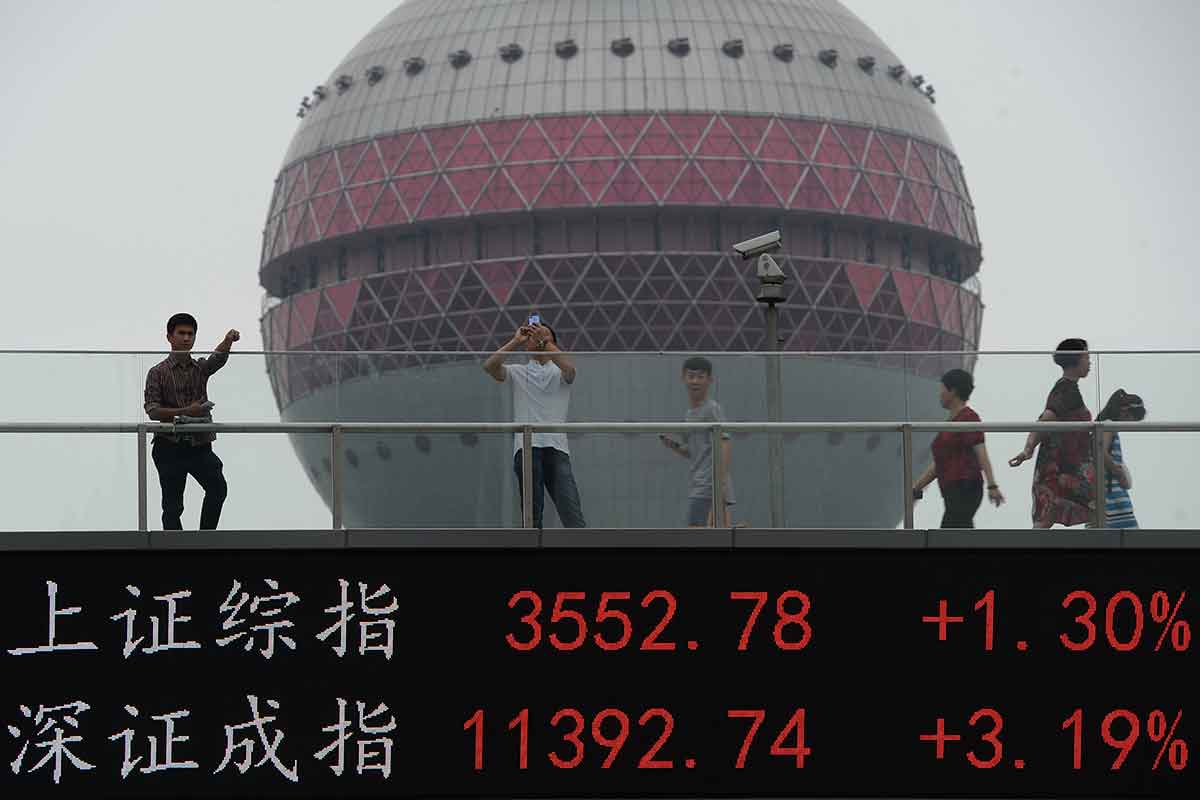Asian shares climbed and United States (US) equity futures fluctuated as investors prepared for news on pivotal US-China trade talks, with tariff hikes set to kick in today. The yuan remains near its weakest since January.
The Shanghai Composite opened up more than one percent, clawing back some of this week’s plunge. S&P 500 Index futures swung from a drop of as much as 0.2 percent to a gain as much as 0.6 percent in the first half hour of trading Friday, mirroring greater fluctuations on Wall Street overnight. Global stocks are heading for their worst week since December as the tariff clock ticks down, though benchmarks in Tokyo and Seoul also saw gains Friday morning. Oil has also been volatile, rising after a sell-off yesterday. In the Treasury market, 10-year yields dipped below three-month ones, in the first inversion since March.
High-level negotiations in Washington, led by Vice Premier Liu He on the Chinese side, have ended their Thursday session and are set to continue today. Investors are also looking for any read-out on an expected telephone call between Presidents Donald Trump and Xi Jinping, after Trump said he received a “beautiful letter” from his counterpart and flagged that they’d probably talk by phone. US tariff hikes are scheduled for 12:01 a.m. New York time – midday Friday in Hong Kong – with China retaliation expected soon after.
“Deal, no-deal means the sentiment could actually sharply rebound” on news of an agreement, said Ben Emons, managing director for global macro strategy at Medley Global Advisors, on Bloomberg Television. “Or we get a significant deterioration” in case of a breakdown, he said. “There’s still a conviction in the market that this deal will happen, it just takes more time perhaps.”
Emons added that, assuming tariff hikes proceed, investor focus will shift to economic data, such as May retail sales and consumer confidence. If the trade war proves to have a significant impact on growth, it will affect the outlook for the Federal Reserve, which could take “an even more neutral stance, if not accommodative.’’
As was the case during trade-war flare-ups last year, China’s stocks have been harder hit than other markets. The Shanghai Composite Index is down six percent this week, while the S&P 500 is on a 2.5 percent loss. China’s yuan has dropped more than one percent for the week in offshore trading, while the yen has appreciated about one percent.
Meanwhile, simmering geopolitical tension elsewhere this week – from North Korea testing missiles again to renewed stress between America and Iran – have added to the cautious mood. The lira remained volatile after Turkey’s central bank unexpectedly raised borrowing costs for the country’s lenders.
These are the main moves in markets:
Stocks
The MSCI Asia Pacific Index gained 0.4 percent in Hong Kong. Japan’s Topix index rose 0.8 percent. Hong Kong’s Hang Seng climbed 0.5 percent. The Shanghai Composite gained 1.2 percent. Australia’s S&P/ASX 200 Index was little changed. South Korea’s Kospi rose 0.2 percent. Futures on the S&P 500 Index were little changed. The underlying gauge fell 0.3 percent on Thursday.
Currencies
The yen was at 109.86 per US dollar, down 0.1 percent. The offshore yuan held at 6.8394 per US dollar. The Bloomberg Dollar Spot Index added 0.1 percent. The euro bought US$1.12, up 0.2 percent.
Bonds
The yield on 10-year Treasuries added two basis points to 2.46 percent. Australia’s 10-year bond yield was little changed at 1.73 percent.
Commodities
West Texas Intermediate gained 0.6 percent to US$62.37 a barrel. Gold was steady at US$1,284.95 an ounce. – Bloomberg
